The Canberra Restorative Community is a growing network of practitioners, professionals, academics and others, based in Canberra, Australian Capital Territory (ACT). Through the mechanism of the ACT Restorative Justice Network, we aim to connect leaders to expand restorative justice principles and practice across the Canberra community. This includes:
- the expansion of the use of restorative approaches in different fields of work
- the development of knowledge and skills of restorative justice applications
- the strengthening of networks and collaborations with restorative justice peers locally, nationally and internationally.
We aim to build Canberra as a restorative community through growing and widening the circle of people who are interested in connecting, sharing and promoting their experiences and knowledge of restorative justice approaches.
Lake Burley Griffin, Canberra. Photo: Tri Mulyanto.
ACT Restorative Justice Network
The ACT Restorative Justice Network of practitioners & champions aims to unite existing and emerging restorative justice leaders who have the energy, enthusiasm and capacity to create a community of practice across Canberra and local surrounds. The network is committed to sharing knowledge and insights through regular interaction through opportunities such as guest speakers, case studies, seminars, and peer collaboration across diverse professional groups.
The network includes experienced restorative justice practitioners and champions from services such as schools, health, corrections, juvenile justice, police, human resource management, Aboriginal services. They include school principals, team leaders, program managers, service managers and social workers.
2015 marks the 10th year of the Restorative Justice Act in the Australian Capital Territory and the expansion of the ACT’s restorative justice scheme. This network has grown out of the potential for Canberra to adopt the principles of restorative practice more broadly in resolving disputes and problem-solving across the community.
The network will be part of an international learning community, making Canberra a global leader in restorative justice development.
This is an exciting opportunity to continue the relationships that we are developing locally and internationally in support of one another’s efforts to work restoratively to secure the well-being and flourishing of our communities, and address the common complex social challenges that we are all facing.
Lake Burley Griffin, Canberra. Photo: Sam Ilić.
Benefits to network participants include:
- Networking opportunities with other participants from a variety of roles and organisations who are using restorative justice approaches.
- Connecting and conversing with leaders from different backgrounds to solve problems restoratively in their field of work.
Benefits for participating organisations include:
- Access to an experienced network of practitioners (and champions) who would like to expand restorative justice in practice for individual and organisational development.
- Development opportunities for emerging restorative justice leaders.
- Peer support for existing restorative justice leaders.
- Opportunities to collaborate with other organisations locally, nationally and internationally.
- Playing a strong leadership role through initiating, promoting, and supporting restorative practice within their sector of influence e.g. participating schools can develop their own ‘sector’ of practice.



